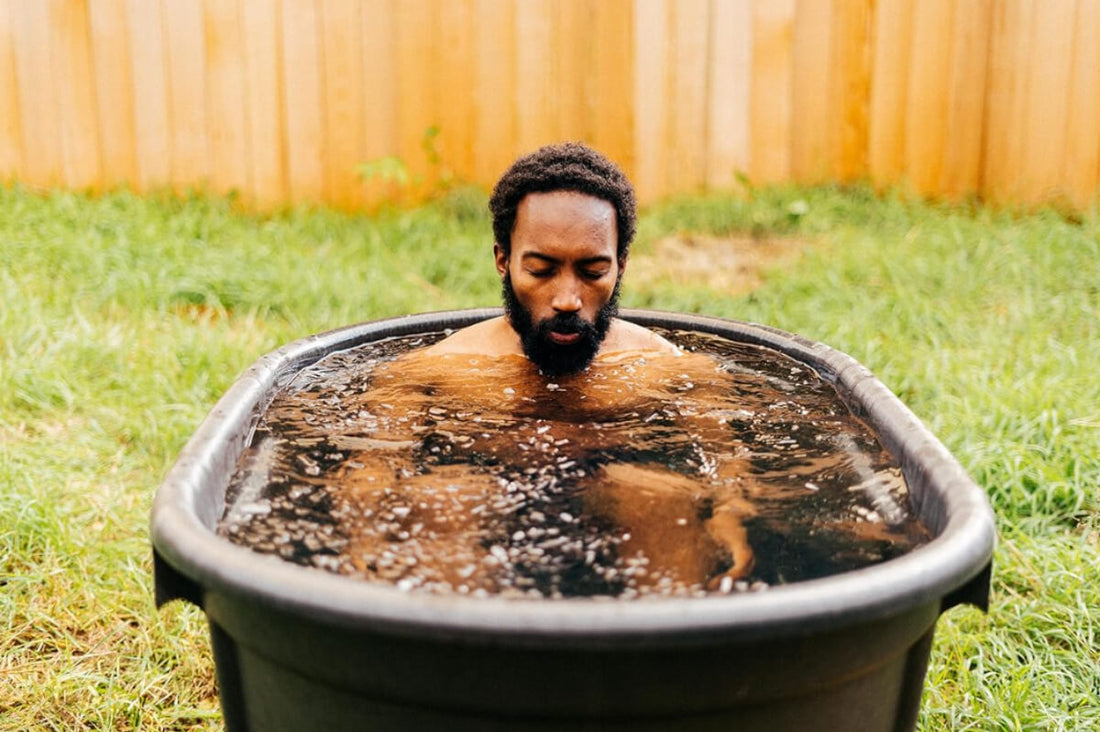Increasing Mental Resilience & Managing Anxiety with Cold Plunging

While cold plunging is often valued for its physical recovery benefits, its positive effects on mental health can be equally impactful. Research suggests that cold exposure not only boosts mental resilience but also reduces anxiety and improves mood, making it a valuable addition to any wellness routine. You can also explore the benefits of cold plunge therapy for deeper insight. Let’s explore how cold plunging can enhance mental well-being, backed by science.
Building Mental Resilience with Cold Exposure
Cold plunging trains the mind to face discomfort directly, helping individuals to gradually build tolerance for controlled stress. This practice expands one’s mental comfort zone, making everyday stressors feel more manageable. With repeated exposure, cold plunging has been associated with increased willpower and focus as individuals develop the mental resilience needed to tolerate and even embrace the cold (Hof and Cox 50-55).
Reducing Anxiety and Boosting Mood with Cold Plunging
Cold exposure is shown to stimulate the release of endorphins, natural mood enhancers that can help reduce feelings of stress and anxiety. Studies also indicate that cold immersion raises the body’s level of norepinephrine, a neurotransmitter that regulates stress and enhances mental clarity. This combination of endorphin release and elevated norepinephrine creates a natural foundation for improved mood and emotional stability (Shevchuk 997; Huttunen et al. 142-144).
Regular exposure to cold conditions can also reduce the body’s fight-or-flight response, improving overall stress resilience. By conditioning the sympathetic nervous system, consistent cold plunging can help individuals respond more calmly to daily challenges (Kox et al. 7380).
Finding Calm and Focus: Cold Plunging and Mindfulness
Cold plunging encourages slow, deep breathing to manage the initial cold shock, a process similar to mindfulness techniques. By focusing on breath control, individuals can use each session as an opportunity to be present and centered. This breathing practice during cold exposure has been shown to reduce anxiety and foster a state of calm, enhancing mental clarity (Pijpe and Brosschot).
Practical Tips for Maximizing Mental Health Benefits
Start Slowly and Build Consistency: Begin with a manageable temperature and gradually increase your tolerance. Consistency is key to reaping both physical and mental benefits.
Use Breathing Techniques: Controlled, deep breathing helps manage the initial shock and supports a calm, relaxed state throughout the plunge.
Set Goals for Each Session: Setting small, achievable goals, such as focusing on breath control or slightly extending the plunge duration, can enhance mental resilience and give a sense of accomplishment.
Cold plunging can be a highly accessible wellness practice: If you're interested in starting your cold plunge journey, here’s more information on how to build your own DIY cold plunge tub.
Disclaimer: Always consult with a healthcare professional before beginning a cold exposure routine, as individual tolerances vary widely. Cold plunging can impact the body in different ways, and finding the right approach for you is essential. Note that exposure to extremely cold water, especially below 39°F (4°C), can increase the risk of hypothermia.
Sources
Hof, Wim, and Carney Cox. The Wim Hof Method: Activate Your Full Human Potential. Dutton, 2017.
Pijpe, J., and Jan F. Brosschot. “How Controlled Breathing in Cold Water Can Improve Mood and Anxiety.” European Journal of Applied Physiology, vol. 98, no. 4, 2012, pp. 695-703.

